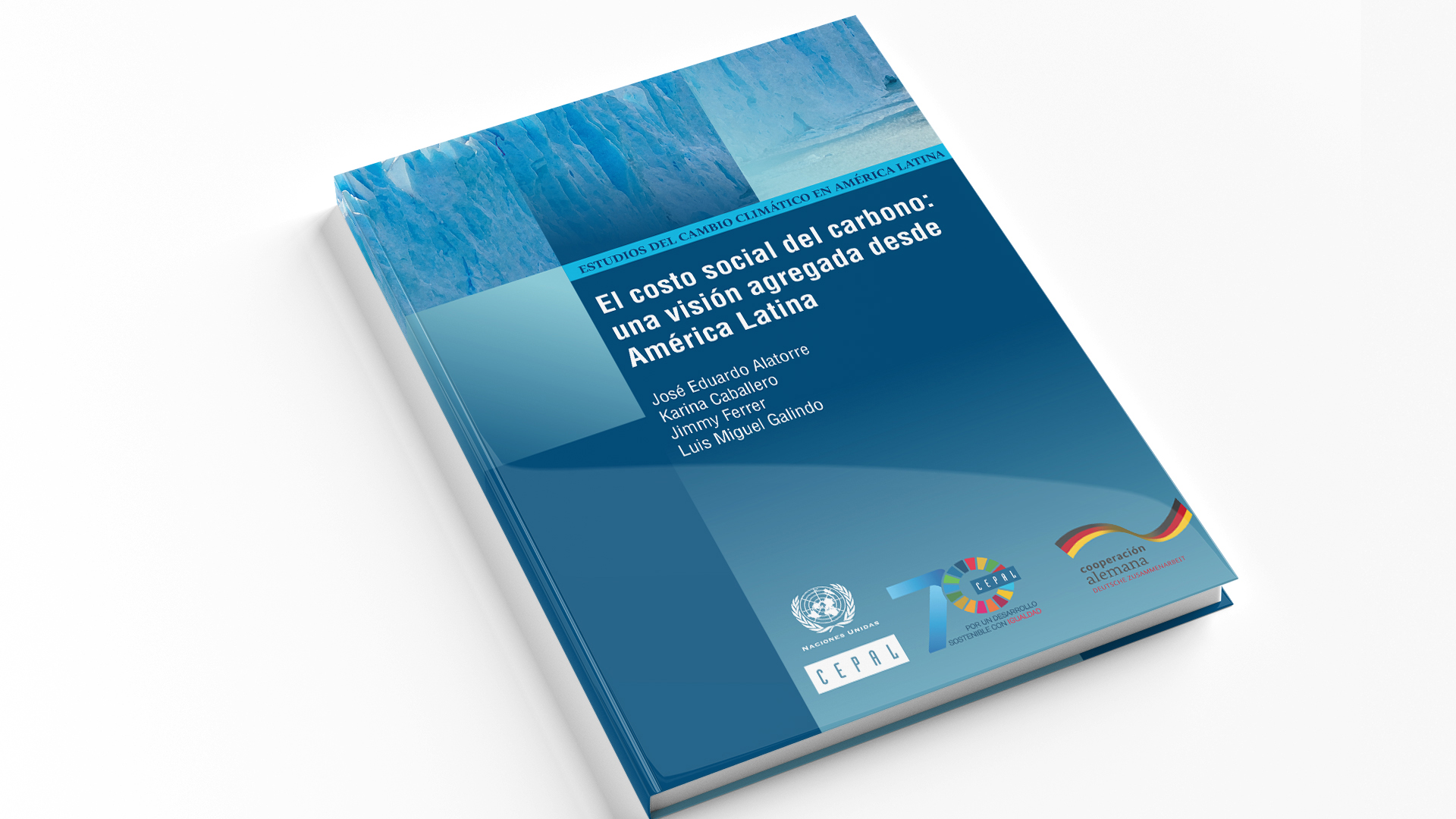Briefing note
Identifying and establishing a social cost of carbon (SCC) is particularly useful for developing public policies on climate change and sustainable development in the region, a new document produced by the Economic Commission for Latin America and the Caribbean (ECLAC) indicates.
The report entitled The Social Cost of Carbon: An Aggregate View from Latin America (in Spanish only) – by authors José Eduardo Alatorre, Karina Caballero, Jimy Ferrer and Luis Miguel Galindo –analyzes and narrows down the wide variety of studies and results on SCC to identify their regular patterns and reduce the margin of uncertainty for public policy purposes.
The social cost of carbon – a critical concept in the economics of climate change – seeks to pinpoint the economic cost entailed by an additional tonne of CO2 being emitted into the atmosphere for economic activities, social well-being and ecosystems. It is defined as the monetary value of the damage caused by emitting an additional tonne of carbon at a given moment in time.
The document underscores that addressing the challenge of climate change involves applying diverse public policies such as regulations or economic instruments, including, for example, the use of a carbon tax that has its basis in Pigouvian taxes that aim for economic agents to internalize negative externalities.
However, it notes that applying a carbon tax in an economically efficient way requires identifying the economic costs generated by greenhouse gas emissions through climate change. To that end, the social costs of carbon must be distinguished in order to be able to establish the optimal amount of the CO2 tax.
According to the study, from a public policy perspective, identifying an SCC in the long term offers a kind of certainty that becomes a critical mechanism for innovation, the processes of substitution of carbon-intensive goods and services, and for preserving future levels of savings and investment. In this way, for example, an SCC is a critical mechanism for the energy and transportation sectors, woodlands and more generally for public policies that address climate change.
These processes also reinforce each other. For example, public policies to stop deforestation or to eliminate fossil fuel subsidies reduce the costs of mitigation substantially.
The study includes four sections, in addition to an introduction. The first of these presents the methodology of the integrated assessment models, which are the main way in which the social cost of carbon is estimated, and also includes major issues of methodological debate such as the discount rate, uncertainty and equity weights. Estimates from the literature on the social cost of carbon are presented in section II. In the third segment, the results of the meta-analysis of the social cost of carbon are unveiled. Lastly, the conclusions and general comments are presented.



